Obayashi Sustainability Vision 2050
From "Green" to "Sustainability"
Obayashi Green Vision 2050 Updated to Obayashi Sustainability Vision 2050
We established our medium- to long-term environmental vision, Obayashi Green Vision 2050, in 2011 and worked to promote the renewable energy business and take other steps to create an environmentally friendly society. In June 2019, we have updated this vision to Obayashi Sustainability Vision 2050 (hereafter, "new Vision") to develop it further. This update of the vision adopts the changes in various social trends and the business environment surrounding the Obayashi Group. The new Vision incorporates our efforts in ESG management and initiatives that will contribute to achieving the Sustainable Development Goals (SDGs). We hereby declare that we will simultaneously pursue sustainability of the planet, society, and people, and of the Obayashi Group.
Overview of Obayashi Sustainability Vision 2050
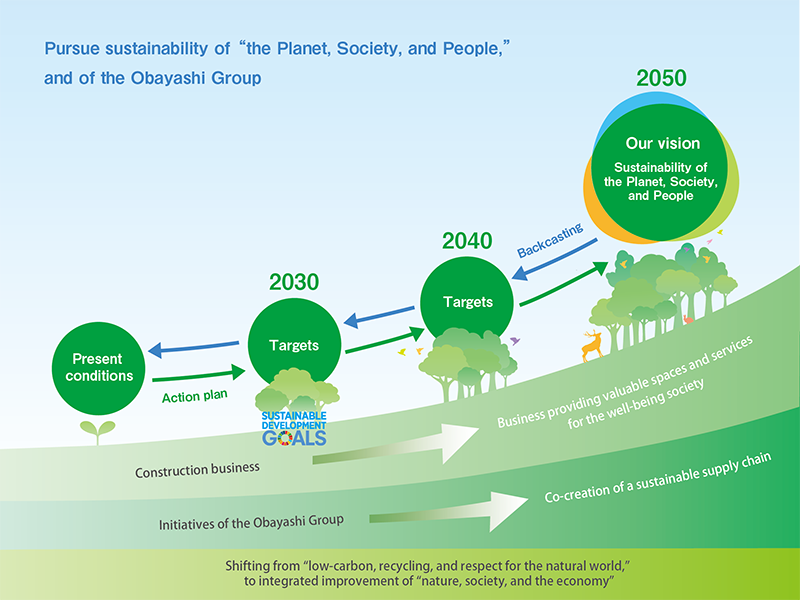
The new Vision outlines the direction that our Group will take in developing our business. It was formulated by using the backcasting technique to set targets for realizing sustainable communities in the future. It defines our Vision for 2050 and sets the targets and business development policies that our Group should undertake between 2040 and 2050. We will establish a concrete action plan and KPIs and move forward to realize the new Vision.
Under Obayashi Green Vision 2050 thus far, we have aimed to create a society that is low-carbon, recycling-oriented, and respects the natural world, mainly through initiatives in the construction business. The new Vision will expand and deepen our business to provide valuable spaces and services. The Obayashi Group will take this action to achieve integrated improvement of nature, society, and the economy by co-creating our supply chain with our suppliers.
Our Vision for 2050
Our Vision for 2050 is defined as a state that maintains sustainability of the planet, society, and people.
Under Obayashi Green Vision 2050 thus far, we have aimed to create a society that is low-carbon, recycling-oriented, and respects the natural world. To update this to our new Vision, we redefined our vision by adding consideration of "society" and "economy" to "nature" since we believe that achieving balance among these three aspects is absolutely essential to realizing sustainability of the planet, society and people.

2040-2050 Targets
We set the following targets for realizing our Vision.

We will set a concrete action plan and KPIs and work to achieve these targets.
Business Development Policies for Realizing Our Vision
We establish three areas of business development: 1) Social-friendly businesses and services, 2) Life cycle management of infrastructure and communities, and 3) Technology and business innovation for the future society. We are targeting these areas in our existing and new businesses. We will also seek out a diverse range of ideas which are not limited to these three areas.
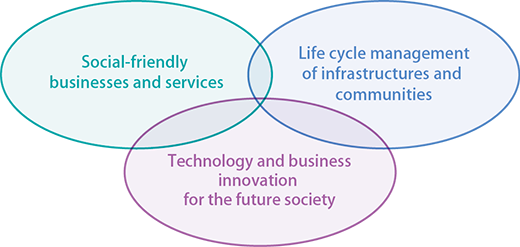
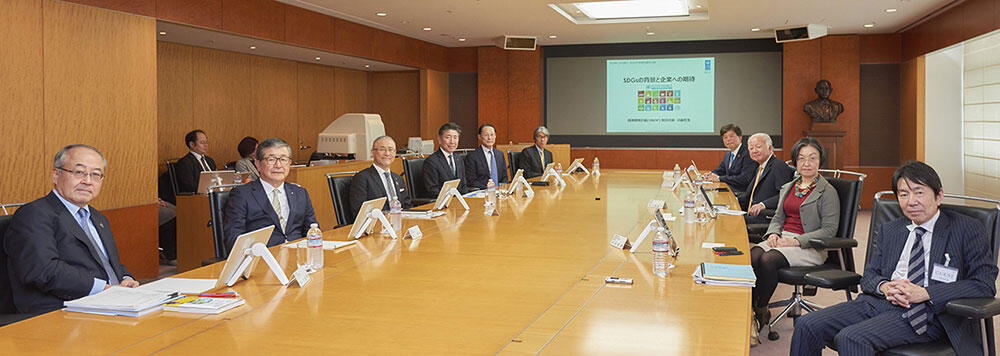
Opinions from Experts
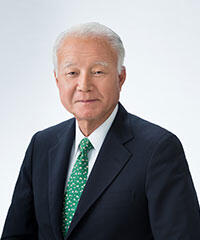
Kazuhiko Takeuchi
Project Professor of the University of Tokyo Institute for Future Initiatives
President of Institute for Global Environmental Strategies (IGES)
Senior Visiting Professor of United Nations University (UNU-IAS)
Recognition of the importance of integrated improvement in nature, society, and the economy has stepped up a level on the basis of international agreements on solving global challenges, which include the Sustainable Development Goals (SDGs), the Sendai Framework for Disaster Risk Reduction 2015-2030, and the Paris Agreement (on climate change), all three of which were adopted in 2015. In Japan, the 5th Basic Environmental Plan stresses the goal of building sustainable communities by creating regional CESs (abbreviation of Japanese for Circulating and Ecological Economies) that roll-out integrated initiatives locally. The update of Obayashi Green Vision 2050 to Obayashi Sustainability Vision 2050 redefined the Group Vision for 2050 as achieving sustainability of the planet, society, and people, and I can greatly appreciate the fact that this Vision does not end with the environment, but also incorporates the concept of the sustainability of society and people as well.
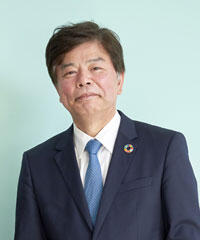
Tetsuo Kondo
Director of Representation Office in Tokyo, United Nations Development Programme (UNDP)
Looking toward the year 2030, the end-goal for the SDGs, and beyond does not only mean eliminating poverty and famine. Well-being (happiness and physical, spiritual, and social health) is also an important concept. Obayashi Sustainability Vision 2050 clearly outlines the direction the Group should take to provide value in all aspects of the lifestyles of people who work and live in society. I have high regard for the fact that the concept of well-being is incorporated in the Vision. I have great expectations for the role that Obayashi will play in providing new value that will contribute to achieving sustainability of the planet, society, and people, which is the Group's new Vision for 2050.

Mariko Kawaguchi
Senior Principal of Research Division, Daiwa Institute of Research Ltd.
Resilience will be an important key to achieving the new Obayashi Sustainability Vision 2050, which aims to improve the sustainability of society and the people who live in them. I think it is the mission of general contractors to maintain social function while also provide residences and urban infrastructure that are decarbonized, resource-saving and resilient. I think that the Group can achieve the new Vision by reaching beyond the technical aspects and providing broad-ranging solutions that transform the lifestyles and values of people. I look forward to "active initiatives" by all employees to make sure that this Vision is not only a matter of management, but is a vision that the employees who will play a central role in achieving the SDGs by 2030 and the Vision beyond that will regard as their own.
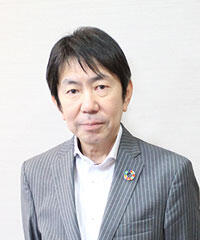
Naoki Yoshida
General Manager of Planning and Administration Office, Research and Development Unit, Mitsubishi Research Institute, Inc.
To pursue the sustainability of the planet, society, and people, and the company simultaneously, Obayashi itself must expand beyond the role of its conventional construction business and shift to a new business model. In concrete terms, Obayashi must define the value of sustainability actively and create and provide businesses that realize the value.
Obayashi has developed and accumulated technological capabilities and management skills. I hope they will use their imagination and creativity to integrate their capabilities and skills and continuously create new innovations and businesses. That is what I think the value of Obayashi Sustainability Vision 2050 is.
I look forward to seeing Obayashi set milestones for 2030 and 2040, and being a company that effectively leads the world in "sustainability x business".

